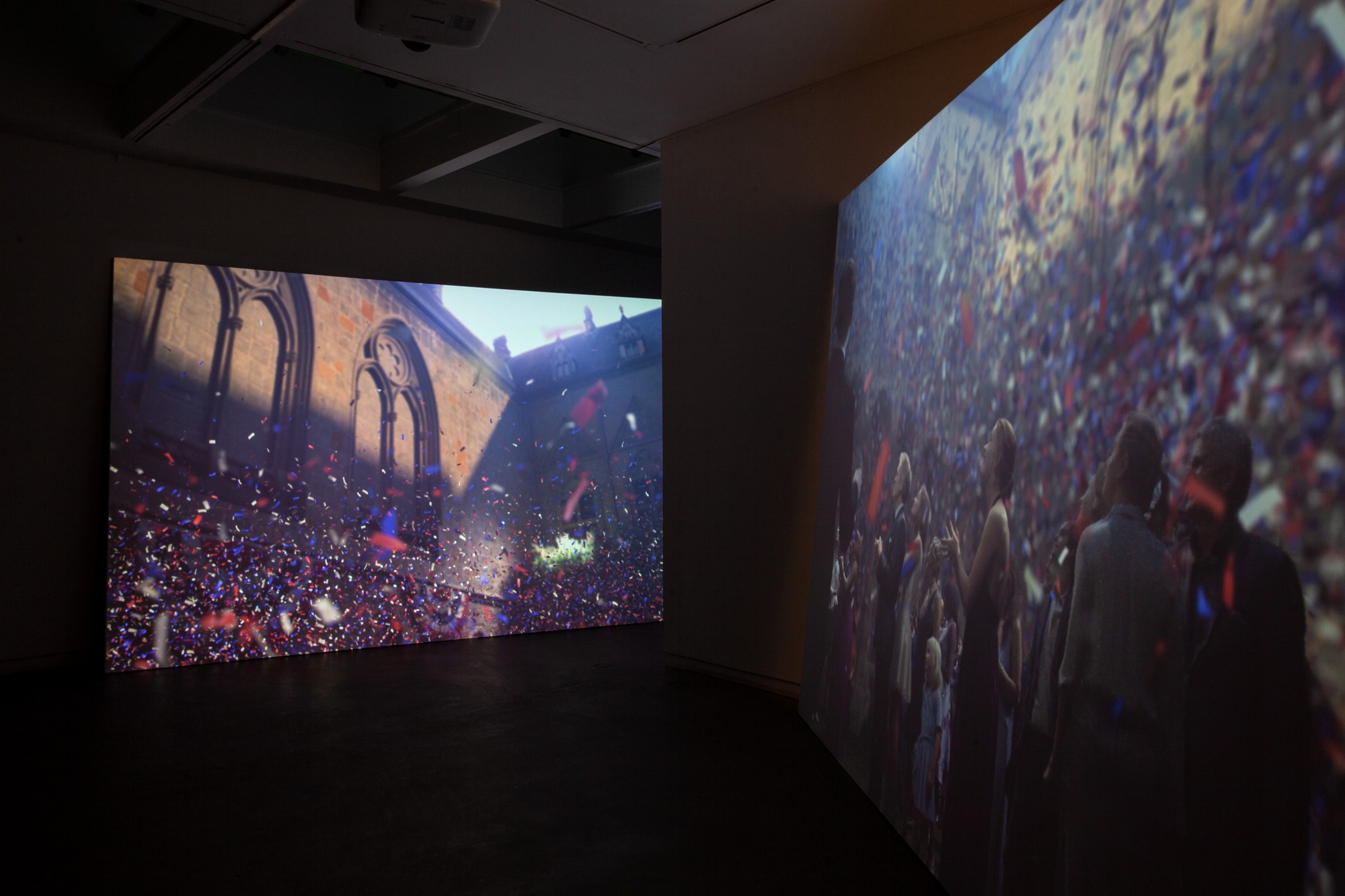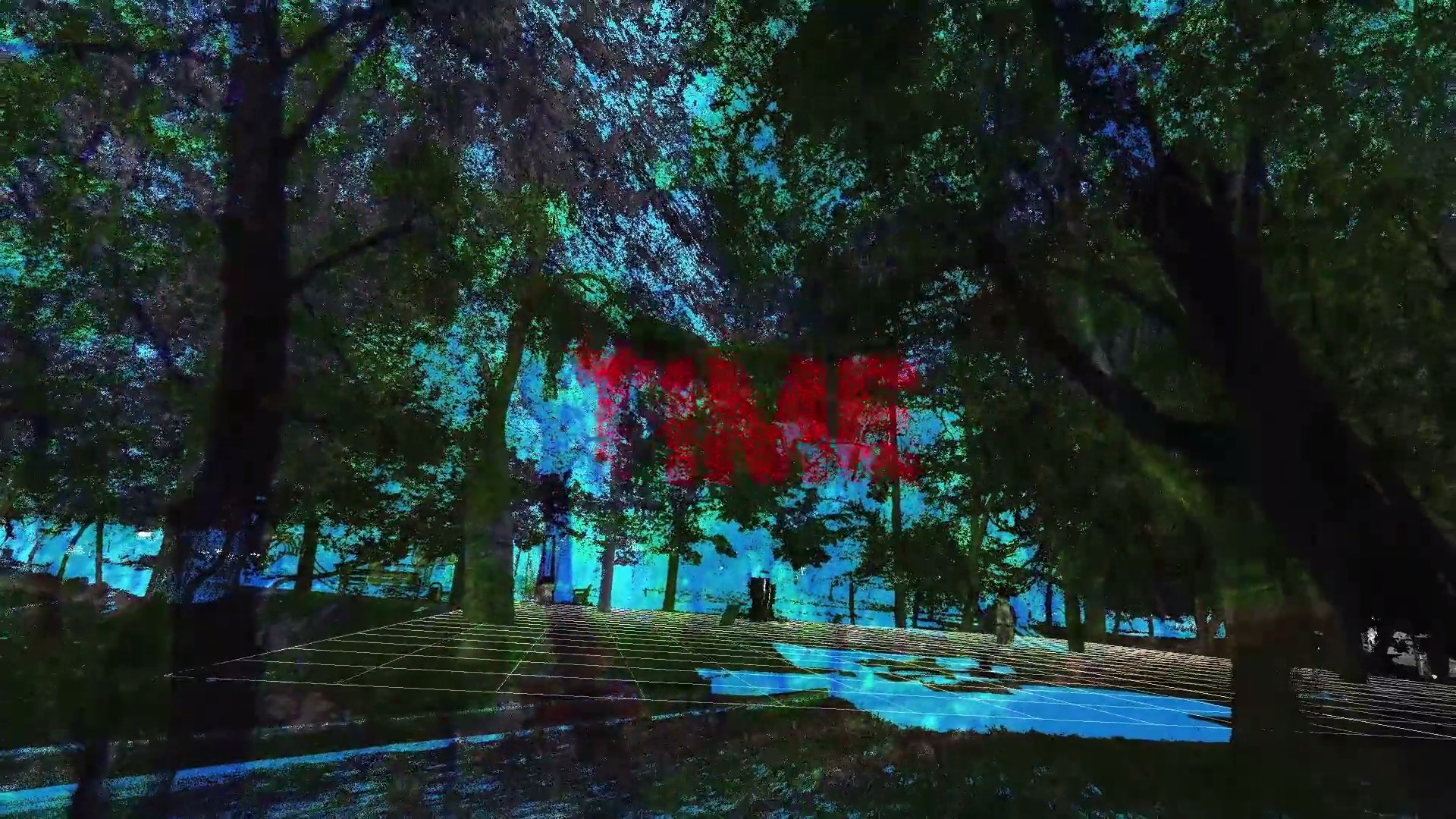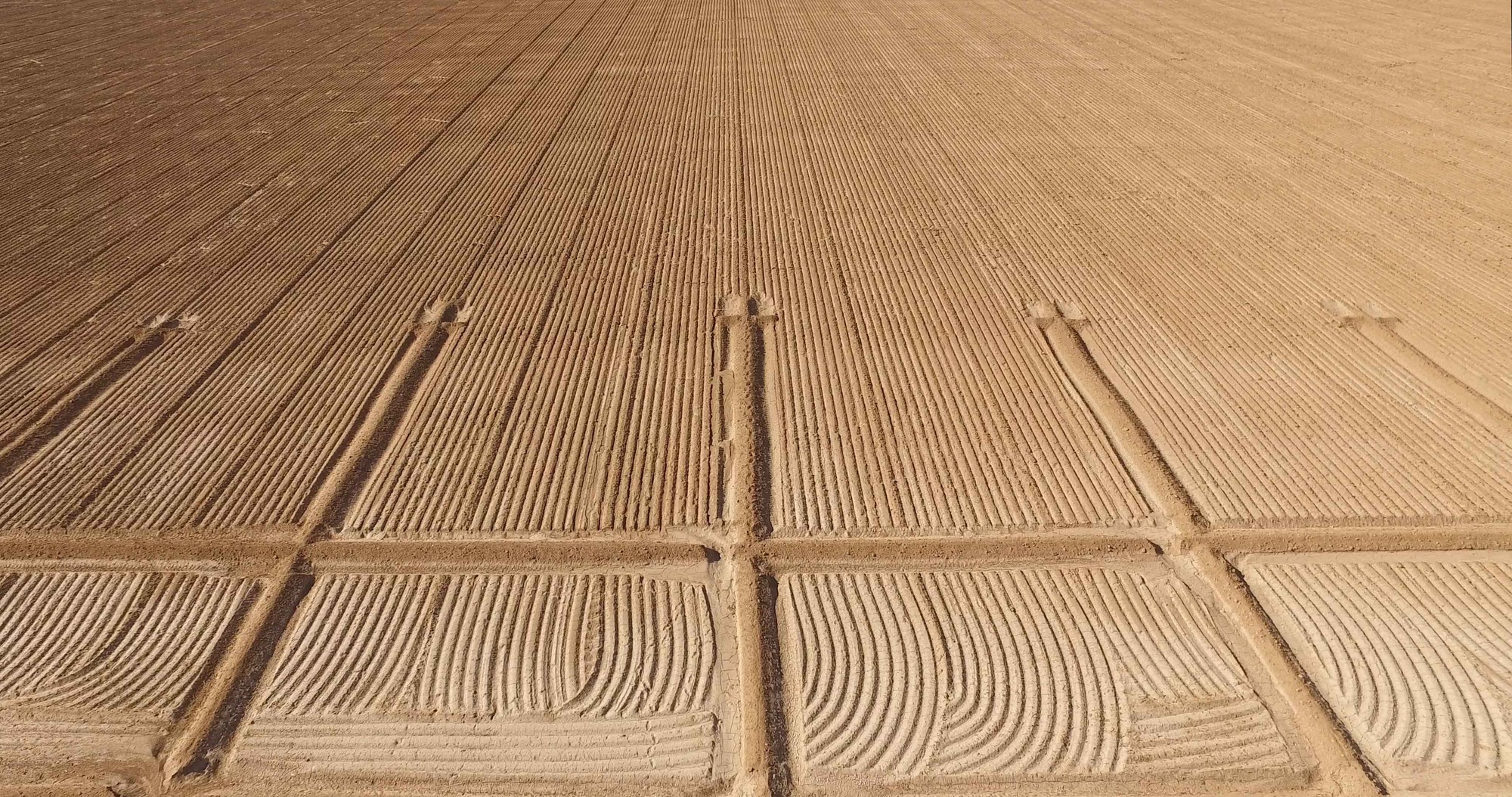A Long Time Short
TRISHA BAGA, HICHAM BERRADA, DAVID CLAERBOUT, DAVID HORVITZ, LUKAS MARXT, BAHAR NOORIZADEH, SU YU HSIN, AGUSTINA WOODGATE
30 Aug 2020 - 11 Apr 2021

David Claerbout, the “confetti”piece, 2015-2018, Video, Courtesy the artist and galleries Sean Kelly, New York; Esther Schipper, Berlin; Rüdiger Schöttle, Munich; Pedro Cera, Lisbon; Annet Gelink, Amsterdam, Installation view: Annet Gelink Amsterdam 2018, Photo: Michel Claus © the artist and VG Bild-Kunst, Bonn 2020
The international group exhibition A Long Time Short focuses on the complex understanding of time in our present days. The works of the participating artists critically question the concept of a linear, one-dimensional and monetary division of time and dismiss it in favour of subjective models and multi-layered theories. For in our global and digital simultaneity, the collective perception of time varies from furiously fast to infinitely slow. Quite often, different speeds may run parallel – while we are likewise caught up in both the past and the future.
Looking at the clock, time advances at a steady pace. But almost every experience of time contradicts this linear construct. It trickles away when we want to hold onto a specific moment and seems to stand still when we are waiting for something. Even technological progress – from enhanced mobility, to global networking, to virtual reality – seldom results only in timesaving but, much like with “The Grey Gentlemen” in Michael Ende’s children’s novel Momo, tends to involve new options and information that steal our time. Surely, time is money. But when our meticulously planned daily life is suddenly interrupted – as it was by the caesura of the corona pandemic – we become virtually lost in time. Unexpectedly, we are faced with the opportunity to reconsider the general consensus of time elapsing synchronously and being economically measurable.
The contradiction between the consistency of clock time and our variable and multi-layered sense of time also becomes apparent when artists investigate the complexity underlying today’s concepts and experiences of time. In the exhibition A Long Time Short, works by Trisha Baga, Hicham Berrada, David Claerbout, David Horvitz, Lukas Marxt, Bahar Noorizadeh, Su Yu Hsin and Agustina Woodgate reflect on the technical, social and economic conditions that influence our perception and assessment of time. A common feature of the primarily video-based works is their open and associative style of narration, which in response to the erratic timing of our lives in a globally networked world runs asynchronously. By combining events that occur at different speeds or by overlaying the physical realm of experience with a virtual reality, they dismiss the familiar concept of a linear, one-dimensional temporality determined by economic processes. Slow-motion shots illustrate the poetic potential of a decelerated experience of time, while often-invoked future scenarios are expressed in ecological themes or past utopias.
Looking at the clock, time advances at a steady pace. But almost every experience of time contradicts this linear construct. It trickles away when we want to hold onto a specific moment and seems to stand still when we are waiting for something. Even technological progress – from enhanced mobility, to global networking, to virtual reality – seldom results only in timesaving but, much like with “The Grey Gentlemen” in Michael Ende’s children’s novel Momo, tends to involve new options and information that steal our time. Surely, time is money. But when our meticulously planned daily life is suddenly interrupted – as it was by the caesura of the corona pandemic – we become virtually lost in time. Unexpectedly, we are faced with the opportunity to reconsider the general consensus of time elapsing synchronously and being economically measurable.
The contradiction between the consistency of clock time and our variable and multi-layered sense of time also becomes apparent when artists investigate the complexity underlying today’s concepts and experiences of time. In the exhibition A Long Time Short, works by Trisha Baga, Hicham Berrada, David Claerbout, David Horvitz, Lukas Marxt, Bahar Noorizadeh, Su Yu Hsin and Agustina Woodgate reflect on the technical, social and economic conditions that influence our perception and assessment of time. A common feature of the primarily video-based works is their open and associative style of narration, which in response to the erratic timing of our lives in a globally networked world runs asynchronously. By combining events that occur at different speeds or by overlaying the physical realm of experience with a virtual reality, they dismiss the familiar concept of a linear, one-dimensional temporality determined by economic processes. Slow-motion shots illustrate the poetic potential of a decelerated experience of time, while often-invoked future scenarios are expressed in ecological themes or past utopias.


